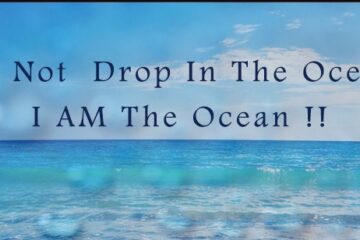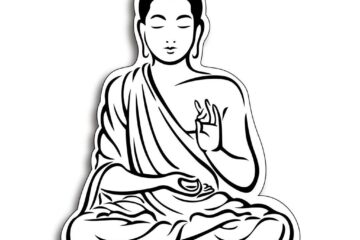Emotions being a domain of the mind, both positive and negative emotions arise and disperse in this faculty. Therefore to understand emotional intelligence it is important to understand the mind in detail. All stress and related negativity that we see around is the play of mind; the way the mind perceives a situation and frames or tags it with emotion. All of this is illusory because the situation is the same for everyone but the reaction is subjective and using the brain, comes from the mind only.
The mind is like clay, the way you groom it in childhood, it takes that shape and defines the personality of the individual. Therefore it is important that both parents and teachers condition the mind in a way that the self-esteem of the child is developed very well and the child transforms into a responsible adult as he grows.
Existential Intelligence
Existential comes from the word exist. Existential Intelligence would therefore mean the basic naturally occurring intelligence in being a human. This would include all types of intelligence that we would have that would determine our character, temperament and eventually personality. Being emotionally intelligent is natural to us and that is a part of our existential intelligence.
Academically speaking, Existential Intelligence is one of the nine types of intelligence in the very famous Theory of Multiple Intelligence given by Dr. Howard Gardner. Existential intelligence as per Dr. Gardner refers to the basic instinct in people to know about the purpose of life, the nature of the creator, the meaning and purpose of life, the mysteries of death and such quintessential questions which make us human and which differentiate us from animals.
Animals live only to feed themselves and reproduce while we humans can be curious and imaginative about how’s and why’s of life and introspect and comprehend about such things. We are no different from animals if we lived only to keep running in the rat race of survival and didn’t stop and wonder at the amazing wonders of life.
Existential intelligence broadens our mental horizons and connects us with life thereby enhancing our emotional intelligence. This is because, when we see life from a macro or the bird’s eye view, we become more inclusive and less selfish and in that self-awareness and empathy are the obvious features that we develop.
Critical Thinking
Critical thinking is an art of not accepting things on face value and questioning the process and even the status quo if needed. It is a virtue, having the positive side of doubt as a strength. Critical thinking is an asset to have to enhance your decision making abilities. Analysing the W’s and H of a situation helps in going deep to the roots of the problem, uncover the core area to be addressed and make the right decisions.
Existential intelligence, for example, is a derivative of critical thinking in the quest to understanding the secrets of the way life operates. It is a faculty of mind which works when things don’t work as status quo and life seems to stop at a dead end and one questions the why’s and why not’s of life in detail.
Critical thinking naturally enhances emotional intelligence. When one is in control of emotions and free from the tyrannies of the mind, one can assess the situation in a much better way by going deep cognitively. When an unacceptable behaviour is expressed, the individual who is habituated to think critically will do a post mortem on the behaviour and end up in going to the roots of the behaviour and hopefully be better next time.
Critical thinking enables one to empathise and also to go deep in the dark alleys of the sub-conscious mind to assess the origins of a particular emotion or thought and the resultant behaviour. Someone with a high level of critical thinking actually doesn’t need an expert psychologist to do the much needed self-analysis. One doesn’t need to read books of psychology to be a psychologist; critical thinking brings the natural behaviour expert from within an individual!
It is like not going to an allopath except when you need a surgery. Disease is a ‘dis-ease’ of mind, a direct resultant of the lack of emotional intelligence. With ways known to manage life emotionally, one can manage most disorders of the body personally or probably homoeopathy or the preventive techniques of naturopathy, ayurved and meditation are enough instead of expensive and stressing methods of allopathy. The beauty of emotional intelligence is that it guides you on how to think instead of what to think.
Expression of emotions – Stereotypes
Having said that, it is clearly seen that people don’t want to accept or at least show their being contended in the fear of being stereotyped as mentally weak to take on the struggles of life. Why do we care about other people’s opinion so much? Because as a social animal, we need support from fellow human beings to survive in society and for that, I need to compromise or manipulate certain aspects of mine.
Another example of such behaviour is hiding being emotional to others, especially if you are a male. ‘Boys don’t cry’ is what is told to boys without realizing the harmful impact of this in the creation of an individual’s personality. Not only does this fellow become a hypocrite, the pent up emotions might enter his sub-conscious mind and make him an emotionally imbalanced male. Even for females, they are being stereotyped and ridiculed for being emotional for similar reasons which is unfortunate.
Emotions make us human. They define our character and personality in the way we react to a situation emotionally. The more we can remain mindful of our emotions, self-aware in the way emotions rise in us, we will be able to manipulate our behaviour in a socially appropriate way as well as take the right decisions especially in testing times.



0 Comments